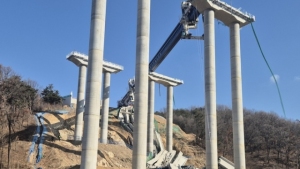《巍巍天山——中国新疆反恐记忆》纪录片
"Some wounds even time can't heal," Xia Yeling, an Urumqi-based psychologist said. For the past decade, she has been treating hundreds of patients suffering from post-traumatic stress disorder (PTSD) due to the July 5 riots in 2009 in the capital city of China's Xinjiang. The killing sprees that resulted in 197 deaths and over 1,700 injures plunged the city into shock and panic, and etched indelible scars in the hearts of survivors and witnesses.
Traumas inflicted by humans are harder to heal than those from natural disasters, according to Xia, because trust between people has deteriorated in the midst of blood-curdling violence.
Between 1990 and 2016, thousands of terrorist attacks plagued the vast land of Xinjiang. Large numbers of innocent lives were lost in horrific stabbings, shootings and bombings. For survivors, the psychological toll could rival that of physical casualties. Xia told CGTN that those suffering from PTSD range from middle school students to seniors over 80 years old.










